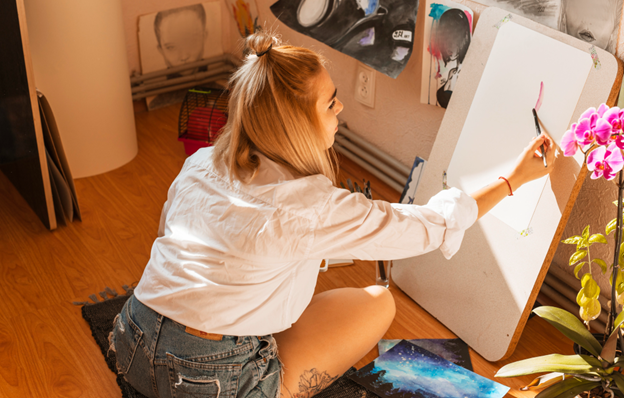L -aPs, Inc.
Here Are Some Unique and Unconventional Paths to Better Mental Health

Mental health care isn’t confined to therapy sessions or medication. In fact, some of the most effective boosts come from creative, sensory, and sometimes unexpected activities. By weaving these practices into your daily life, you can refresh your mindset, calm your nervous system, and nurture resilience. Here are unique ways to improve your mental health, each backed by a specific approach you can try today.
Indoor Nature Connection
You don’t need a forest outside your door to reap the benefits of nature. Even simple interaction with indoor plants can
reduce stress levels, improve focus, and create a calming environment in your home or workspace. The act of watering, pruning, and observing your plants’ growth fosters mindfulness, which helps anchor you in the present moment. Researchers have found that touching or tending to greenery indoors can lower blood pressure and elevate mood, offering a natural and accessible mental health boost for those living in urban or high-stress settings.
Virtual Reality Art Therapy
For a modern twist on traditional art therapy, consider exploring a VR-based art therapy environment.
These immersive spaces allow you to paint, sculpt, or design in three dimensions without any real-world mess or supply limitations. The combination of creative expression and virtual immersion engages multiple senses and can provide a profound sense of escape from daily stressors. For people who find it hard to “switch off” or who struggle with mobility, VR art therapy can be a gateway to the same therapeutic benefits of hands-on art, but with added novelty and engagement.
Alternative Stress-Reduction Modalities
Exploring a mix of safe, non-invasive approaches can provide fresh ways to manage daily stress without relying on a single technique. Gentle movement practices such as restorative yoga can relax muscles while steadying the breath, and aromatherapy engages the senses to encourage calm.
Adaptogenic herbs like ashwagandha have been studied for their ability to help the body adapt to stress over time. For some, the calming potential of
THCA diamonds concentrate
offers another natural option to support mental balance. When combined, these modalities create a versatile, well-rounded toolkit.
Cozy “Grandma” Hobbies
Hobbies your grandmother might have loved—like knitting, quilting, or embroidery—are more than charming throwbacks. Repetitive, hands-on pastimes create a meditative rhythm that can lower anxiety and help regulate breathing. The tactile feedback from yarn, fabric, or thread engages your sense of touch, which can be grounding in moments of mental unrest. Many people also find that working on a project over time fosters patience and provides a tangible sense of accomplishment, making these traditional crafts surprisingly relevant for modern mental health needs.
Junk Journaling Practice
If you’ve ever felt that “real” journaling is too neat or intimidating, lowering stress and anxiety
through junk journaling might be the answer. This approach embraces imperfection—scraps of paper, stickers, doodles, and messy handwriting all have a place. By removing the pressure to be polished, you create a safe space for self-expression and emotional release. Over time, junk journaling can help you process feelings more freely, develop creative confidence, and enjoy the meditative act of making without judgment.
Cold-Water Therapy
Taking a plunge into cold water might sound extreme, but the cold water immersion benefits
for mood and mental clarity are gaining attention. Short sessions in cold baths, lakes, or even cold showers can stimulate endorphin release and reduce inflammation, which is linked to improved mental well-being. The physical shock prompts deep breathing and heightened focus, pulling you out of mental fog. While it’s important to approach this practice safely and gradually, many find that cold-water therapy offers a refreshing reset.
Creative Self-Care
Engaging in art isn’t just for professional creatives—art stimulates focus and resilience in anyone willing to give it a try. Painting, drawing, or sculpting can provide a nonverbal outlet for processing emotions and problem-solving. The creative process encourages patience, adaptability, and a sense of play, which can be deeply restorative for mental health. Even setting aside 15 minutes a day for creative activity can shift your mood, reduce stress, and build emotional resilience over time.
Your mental health toolkit doesn’t have to look like anyone else’s. Whether you’re tending a window herb garden, immersing yourself in a virtual art studio, or braving a cold plunge, these unconventional approaches offer fresh ways to connect with yourself. By exploring diverse practices and finding what resonates, you can build a mental health routine that is both effective and uniquely yours.
Discover the transformative power of community support with L-aPs, Inc., where we connect lives and provide essential resources to help you thrive through life’s challenges.



